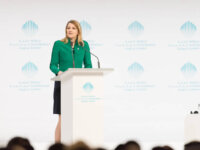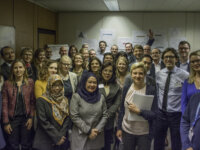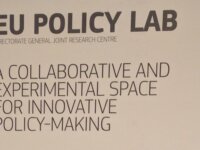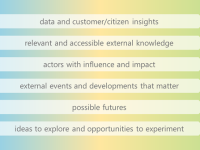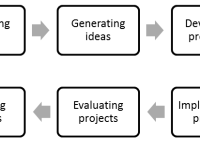This blog is authored by guest blogger, Sabine Junginger Head, Competence Center for Design and Management at University of Applied Sciences and Arts Lucerne Public sector challenges inherently concern and involve people. “The Public” after all does not exist in the absence of people. Nor does government. Those we entrust with the responsibilities to govern are people. We ask policy-makers and public managers to develop and implement policies that lead to socially desirable outcomes. In…
Posts on Public Service
There’s been a flurry of activity at OPSI over the past few weeks. While we’ve been working to pull together a systems thinking workshop that we will be hosting in Paris tomorrow (link in blog), a few of us made our way to Dubai to attend the 2017 World Government Summit in order to launch our latest report: Embracing Innovation in Government: Global Trends. We had the opportunity to meet innovators from all over the...
Over the last year, we have been working in partnership with the UAE’s Mohammed Bin Rashid Centre for Government Innovation (MBRCGI) to conduct a global review of ways governments are transforming their operations and improving the lives of their people though innovation. We have conducted extensive research into innovation trends and examples in OECD member countries and non-members alike, as well as a two-month open “Call for Innovations” to identify examples of innovative practices…
This blog was authored by former OPSI Policy Analyst, Matt Kerlogue Bonne année. Gott nytt år. Frohes neues Jahr. 明けましておめでとうございます. Feliz año nuevo. Szczęśliwego nowego roku. Happy New Year! The OPSI team hopes that you have had a great start to 2017. In 2016 our team grew from two to six people. We launched off a number of projects under our European Horizon 2020 grant. And we ran a global call for innovation projects to...
How do countries get insight into the big issues that are affecting them, such as the refugee crisis or youth unemployment? How do they come up with new ways of seeing problems that allow for new ways of responding? On the 17th and 18th of October the European Commission hosted the event “Lab Connections: Policy Labs in Europe, for Europe” to look at one mechanism that is increasingly used by governments to come up with...
OPSI releases a new call for case studies from city governments to identify success stories in local public sector innovation. Access the city space of OPSI and fill in the questionnaire online to share your story by November 15, 2016 (details in blog). We invite you to contribute to our innovation scan and submit innovative city practices on the OPSI submission form. Case studies on what and what for? Cities have become the engine of...
The work of the public sector is changing quickly to respond to a more complex, interdependent and hard-to-predict world. Are we, and the organisations we work in or with, ready to fully understand that change and convert that new understanding into knowledge and innovations that improves the lives of citizens? We hope to hear from you about your experience to inform our work. In my last post I wrote about OECD efforts to develop a...
How do you know why, when and how you should use a particular tool to get the best results? I’m working on the development of an Innovation Toolkit for public servants and I want to hear from you about how you choose between methods, and what information you need when you are using a new approach. Why an innovation toolkit? The work of public servants is changing. Traditional methods no longer guarantee the same results...
This blog was authored by guest blogger, Bruno Queiroz Cunha, Advisor, Special Advisory Unit for Management Modernization, Brazilian Ministry of Planning Innovation requires a certain amount of creativity and dynamic thinking, two qualities that come somewhat naturally in Brazil. The country’s recent Innovation Week was all about harnessing these attributes for positive change in the public sector. From November 30th and December 4th, several hundred participants embarked enthusiastically…
On 17 June this year, the International Meetings of Public Management (IMPM) will be held in Bercy in Paris with a theme that is new for France: ‘The third sector: towards collaborative public services’.


